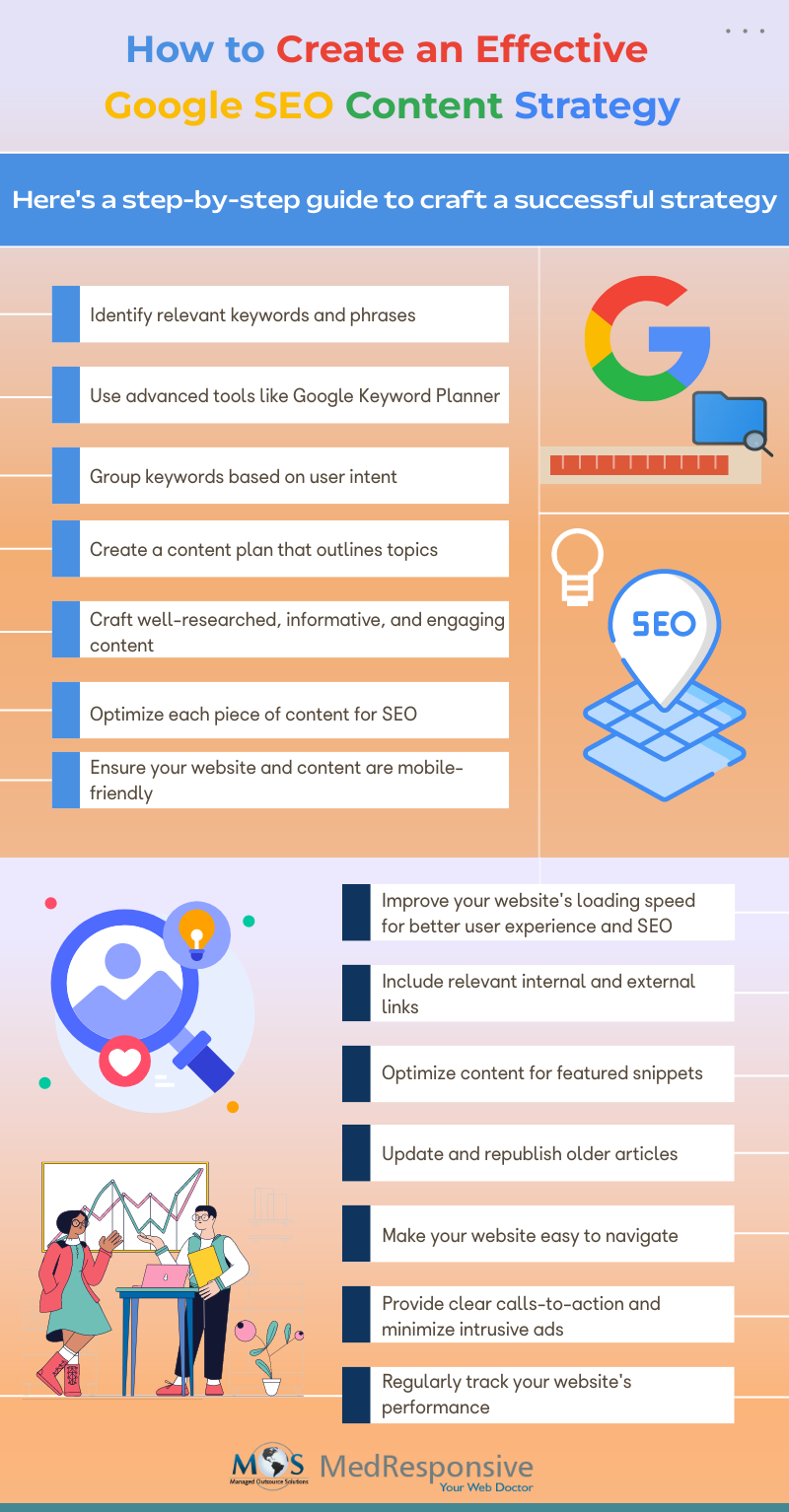Every business has its own key success indicators. You may want to attract more organic traffic, while others seek to boost online conversions. To achieve your objectives, there are two strategies: SEO and content marketing. The best-tested method to maintain consistency in ranking is to implement SEO content strategies that benefit the searcher and gives a top-notch user experience. Make sure to keep SERPs in mind when you start developing content for two reasons:
- You are more likely to come up in searches. This increases the likelihood that more people will visit your page.
- You can get a clear understanding of your target market’s demands.
To attract more customers, you need to produce content that addresses their concerns. A professional digital marketing services company can help create custom SEO content strategies whatever your business niche is.
What Is SEO Content?
SEO content refers to content created with the main goal of improving a website’s visibility and ranking on search engine results pages (SERPs). Here, content is optimized to attract organic (non-paid) traffic from search engines such as Google, Bing, and Yahoo. Effective SEO content is not only optimized for search engines but also provides value to users by offering relevant information that addresses their needs, questions, or interests.
Your content is search engine optimized with the strategic use of keywords, meta tags, and other on-page optimization techniques to make it more relevant and attractive to search engine algorithms. The goal is to ensure that when users search for relevant topics or queries, your content appears prominently in the search results, driving traffic to your website.
7 Tips to Generate a Good Google SEO Content Strategy
Here’s a roadmap to creating an effective Google SEO content strategy:
- Know your target audience and goals:
Understand your target audience’s demographics, interests, pain points, as well as search queries. Also, have a clear idea regarding what exactly you want to achieve – increase brand awareness, generate leads, or boost website traffic.
Create buyer personas to represent different segments of your audience and tailor your content to their specific needs and preferences.
- Keyword research and topic suggestion:
Start by researching relevant keywords and phrases that your target audience uses to find services related to your niche. Tools like Google Keyword Planner and SEMrush can help. Focus on a mix of short as well as long-tail keywords (more specific searches) with low competition to capture wider interest while targeting relevant niches. Based on the chosen keywords, decide on content topics that better explain your services and provide value to your audience.
- Content planning and organization:
Develop a content plan that suits your business goals and meets the needs of your target audience. Create a content calendar to schedule regular publishing and ensure consistency in your content strategy. Content organization is also crucial. Categorize it into clusters or topics, with pillar pages covering broad topics and supporting content pieces addressing specific subtopics.
This hierarchical structure of your content helps search engines understand the relevance and context of your posts, and makes it easier for users to navigate and find the information they’re looking for. With strategic planning and content organization, you can maximize the impact of your content, drive organic traffic to your website, and ultimately achieve your SEO goals.
- Content creation and optimization:
Develop high-quality content that is valuable, informative, engaging, and addresses the search intent behind the keywords. Content forms could include blogs, articles, videos, infographics, podcasts, or interactive content. Also, optimize your content for search engines by strategically incorporating relevant keywords throughout the text, title tags, meta descriptions, and headers.
Structure your content logically with clear headings, subheadings, and bullet points to improve readability.
- Technical SEO and user experience:
Focus on the technical side as well. Ensure your website is mobile-responsive and loads quickly. Also, users should be able to navigate it easily, as Google prioritizes these factors. Optimize your website’s internal linking structure to help search engines crawl and understand your content hierarchy. Fix any crawl errors, and implement a structured data markup. Combined effectively, technical SEO and UX enhancements create a smooth browsing experience for visitors while boosting search engine rankings.
- Content promotion and link building:
Content promotion involves sharing your content across various channels to increase its visibility and ensure it reaches your target audience. Promote your content on social media platforms, via email marketing campaigns, and among relevant online communities. Build high-quality backlinks to your website from authoritative sources. This increases your website’s credibility and ranking potential in search results.
- Monitor results:
Track your SEO performance using Google Search Console and other analytics tools. Regularly analyze your website traffic, keyword rankings, and user engagement to understand what’s working and identify areas for improvement. Also, refine your SEO strategy based on your data and adapt to evolving search engine algorithms.
Unlike paid advertising, where visibility ends once the budget is exhausted, SEO content continues to deliver results over time. Reliable SEO companies provide content writing services that can help you achieve your goal of ranking well in search engine results. This is the first step towards attracting targeted traffic and increasing conversions.
Transform your content into a search engine magnet!
Partner with us for top-notch SEO content creation.




